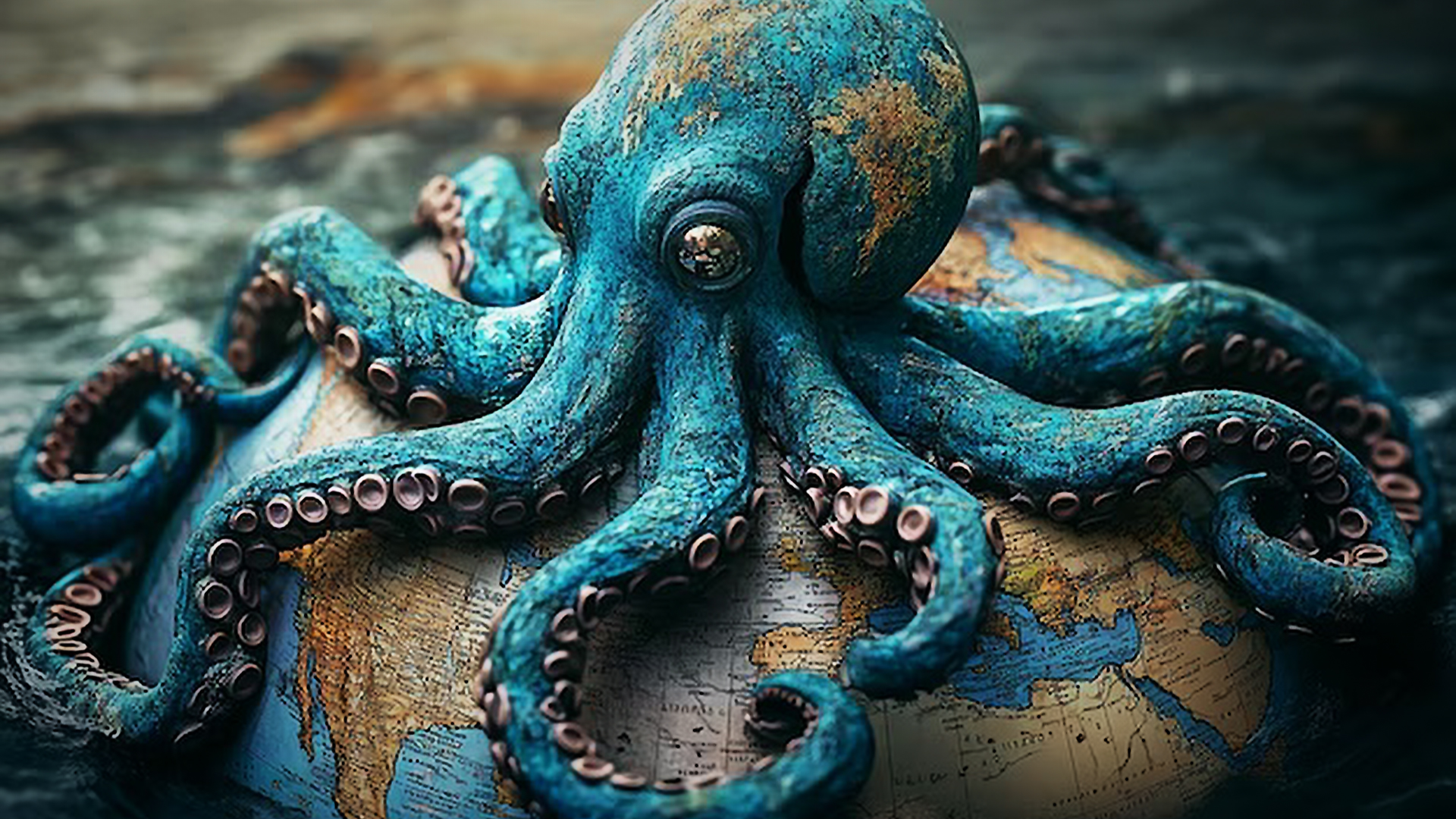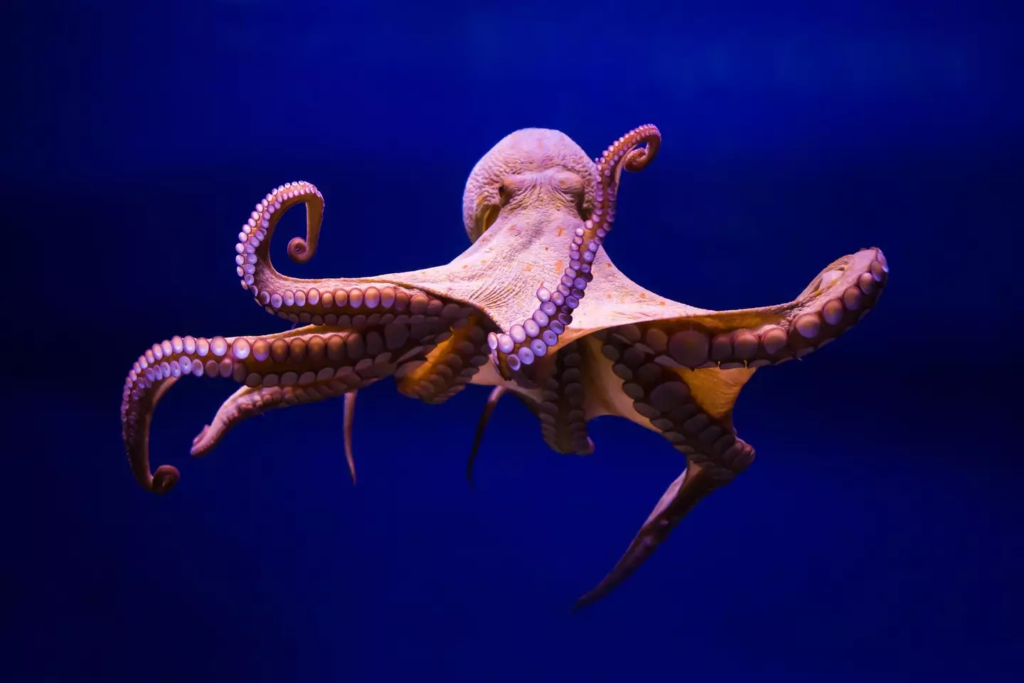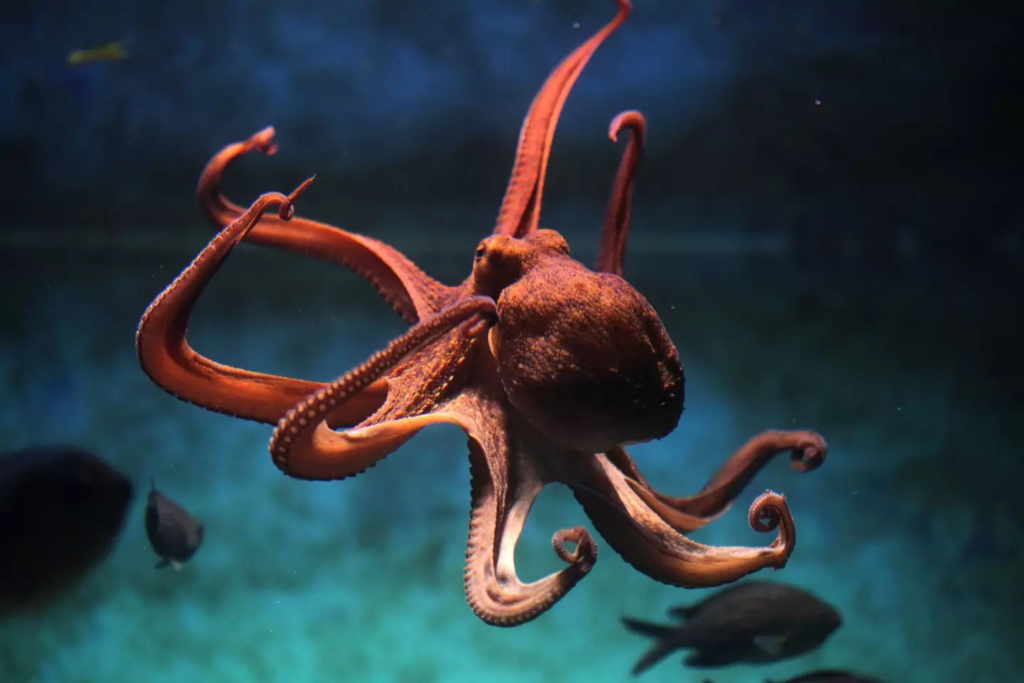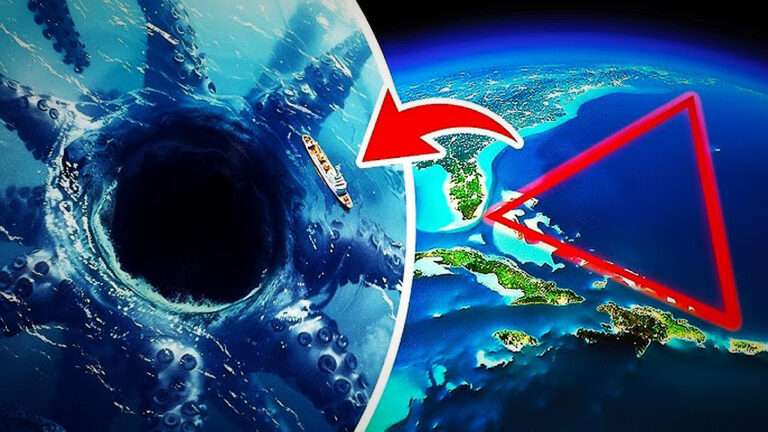From the Deep: Could Octopuses Rule the World Post-Humanity?

Introduction: A Slimy Supremacy in Waiting?
Could octopuses really take over the world if humans were to vanish? While the idea might sound like the plot of a sci-fi movie or an episode of a speculative TV series, it holds a surprising basis in scientific thought. Imagine a world where, in the absence of humanity, these intelligent, tentacled creatures rise to dominance, filling the ecological void left behind. Their unique intelligence, adaptability, and problem-solving capabilities position them as potential rulers of a post-human Earth.
Octopuses, often seen as enigmatic and mysterious beings of the deep sea, have always fascinated scientists and the general public alike. Their ability to camouflage, solve puzzles, and even escape enclosures suggests a level of cognitive complexity rare in the animal kingdom. These characteristics have led researchers to ponder what might happen if humanity were to face extinction and leave room for other species to ascend the ladder of dominance.

The discussion isn’t just about their ability to survive but their potential to thrive in an environment where human civilization has ceased to exist. As we explore this intriguing possibility, we delve into the behaviors, intelligence, and evolutionary potential of octopuses, examining how these sea creatures could transform from marine marvels to rulers of a new world.
Discover more about post-human ecosystems here.
Why Octopuses Could Be the Next Rulers of Earth
Unlikely Candidates: Beyond Lions and Tigers
When contemplating which species might take over after a human extinction, it’s natural to think of land-based predators like lions or tigers, known for their strength and dominance. However, these traditional “kings of the jungle” might not be as well-equipped for global rule as their aquatic counterparts. The idea that octopuses could be next in line challenges our conventional understanding of power dynamics in nature. Unlike terrestrial predators, octopuses possess a blend of intelligence, adaptability, and problem-solving abilities that make them unique contenders for world dominance.
Explore more about potential post-human rulers here.
Octopuses’ Unique Abilities
Professor Tim Coulson from the University of Oxford emphasizes that octopuses have the necessary traits to thrive in a post-human era. Their intelligence, evidenced by their ability to solve complex problems and escape from enclosures, is unparalleled among invertebrates. Coupled with their dexterity, which allows them to manipulate objects with precision, octopuses could potentially develop the skills needed to create and sustain a civilization. Their adaptability to various environments further solidifies their status as a species with potential to rise to dominance.
Learn more about the intelligence of octopuses.
The Science Behind Octopus Intelligence
Communication Through Color
One of the most fascinating aspects of octopus intelligence is their ability to communicate using chromatophores. These specialized cells enable them to change color, signaling different emotions or intentions to others of their kind. This form of communication is not only effective for survival but could also be a foundation for more complex societal interactions. In a world without humans, the ability to convey intricate messages through color could be instrumental in building social structures and coordinating group activities.
Discover the fascinating world of chromatophores here.
Vision and Color Perception
Though octopuses only perceive shades of grey, their unique pupils allow them to distort light, which helps them interpret color indirectly. This advanced visual system enables them to blend into their surroundings with remarkable precision. Such a skill is invaluable for both predation and defense, allowing them to navigate and survive in diverse environments. The combination of visual acuity and color-changing abilities gives octopuses a strategic advantage that could support their evolution into dominant beings.
Explore how octopuses see and perceive their world.

Potential for Evolution: Life Beyond Water
Constructing Underwater Cities
While the idea of octopuses walking on land seems far-fetched, the concept of them building underwater communities is much more plausible. These aquatic cities could mirror human urban environments, with octopuses creating structures from natural materials found on the ocean floor. Their ability to learn and adapt could lead to the development of complex societal organizations, mimicking human cities in functionality and purpose. This potential shift from solitary living to communal existence is a significant evolutionary leap that could pave the way for octopuses to establish dominance in a post-human world.
Read about the possibility of underwater cities.
The Long Road to Land
Adapting to life on land would be a monumental evolutionary step for octopuses. While they can currently survive for short periods outside of water, sustained terrestrial life would require significant physiological changes. Over millions of years, these adaptations could include developing methods to breathe air, navigate on land, and hunt terrestrial prey. Such evolutionary progress would mirror humanity’s journey from aquatic life to land-dwelling creatures. However, the short lifespan of octopuses presents a challenge, as these significant changes would need to occur rapidly to be viable.
Learn how evolution shapes species over time.
Challenges and Speculation
Unpredictable Evolutionary Paths
The idea of octopuses taking over the world, while captivating, is based on many speculative assumptions. Evolution, as we know, is a far from predictable process. Even though octopuses possess unique traits that might allow them to thrive in a world without humans, the course of evolution is filled with twists and turns that are difficult to forecast. Random mutations, shifts in environmental conditions, and unforeseen ecological challenges can all drastically alter the trajectory of a species’ development. For instance, while octopuses are known for their advanced cognitive abilities, there’s no guarantee that evolution will take them down the path of intelligence similar to humans. Some species may adapt to new challenges in ways that surprise us, or an entirely different form of life might rise to prominence due to factors we can’t predict.
Moreover, the rapid changes required for octopuses to transition from marine to land life would likely face numerous hurdles. Evolution doesn’t always move in the direction we expect, and often the genetic mutations that lead to significant changes in a species are rare. Even with the considerable time frame available, the evolution of new abilities like breathing air or adapting to hunting large mammals could be much slower or more erratic than anticipated. Therefore, while octopuses seem like promising candidates for future dominance, this is still highly speculative, with evolution’s unpredictable nature playing a crucial role in shaping the future.
Understand the complexities of evolutionary biology.

The Time Factor
A major challenge to the rise of octopuses as the dominant species is their remarkably short lifespan. The average lifespan of most octopus species ranges from one to five years, a time span that is much shorter than that of many other animals with significant evolutionary potential. In comparison, humans, with our extended life expectancy, have a far longer window in which we can accumulate knowledge and pass on learned behaviours to successive generations. This generational time scale plays a key role in the development of complex behaviours and cultural knowledge.
For octopuses to evolve the necessary skills for world domination—such as land-based hunting, the development of complex social structures, and the ability to build infrastructure—they would need a much longer period to adapt. Evolutionary changes take time, often spanning thousands, if not millions, of years. The problem for octopuses is that they do not have that luxury. Their brief lifespan presents a significant barrier, as each generation would only have limited time to adapt and pass on newly acquired traits. Without the necessary generational time, the rapid evolutionary changes required for octopuses to conquer terrestrial life might be impossible within the constraints of their natural lifespan.
[Explore how lifespan impacts evolutionary potential.
In light of these factors, the rise of octopuses as the dominant species on Earth remains an uncertain, speculative scenario. While their potential for intelligence and adaptability is undeniable, their short lifespan and the unpredictable nature of evolution present significant challenges to their chances of world domination.
Conclusion: A Speculative Future
The idea of octopuses ruling the world is a captivating notion that blends science fiction with evolutionary theory. While the likelihood of such a scenario remains speculative, it opens a thought-provoking dialogue about the resilience and adaptability of life. As we ponder the future of our planet, it’s essential to consider the potential for non-human species to rise and fill the ecological niches we leave behind. Octopuses, with their remarkable intelligence and adaptability, stand as a testament to the boundless possibilities of evolution in shaping the future of life on Earth.
Stay updated with more intriguing science insights.
Join the Conversation
What are your thoughts on the potential rise of octopuses in a post-human world? Could these intelligent sea creatures truly become the next rulers of Earth? Join the discussion on social media platforms and share your perspectives on this fascinating topic.
Featured Image Credit: Getty Stock Images






